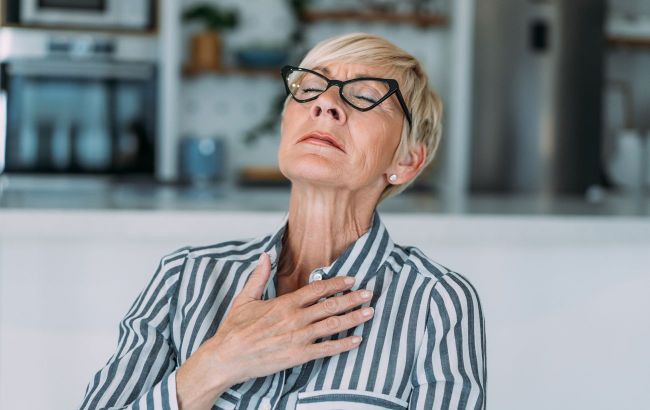Doctors identify 6 important symptoms you should never ignore
 6 symptoms that indicate serious health problems (photo: Getty Images)
6 symptoms that indicate serious health problems (photo: Getty Images)
Pain is often a sign that something is wrong with your health. Not all types of pain are serious, but there are symptoms that almost always indicate serious problems and should never be ignored, reports WebMD.
Weakness or numbness in the arms and legs
If you experience numbness or weakness in your arms, legs, or face, it could be a sign of a stroke. This is especially concerning if the symptom occurs on one side of the body or develops suddenly.
A stroke is also likely if you feel dizzy, can't keep your balance, or find it hard to walk. You may have a sudden and severe headache, vision problems, speech difficulties, or problems with understanding what others are saying.
Don't wait for symptoms to stop. Seek emergency help immediately, as every minute counts in the event of a stroke. The sooner you receive assistance, the greater the chance of surviving a stroke without long-term problems.
If you have heart problems such as high blood pressure or atrial fibrillation, pay attention to these symptoms. You are at a much higher risk of having a stroke.
Chest pain
Almost everyone has experienced chest pain at least once in life, in some form or another, whether it's dull throbbing or sharp stabbing pain. Since it can be a sign of a serious problem, it's important to seek medical help as soon as possible.
Chest pain or pressure can be a sign of a heart attack or heart disease, especially if it occurs during physical activity.
People who have had heart-related pain describe it as a burning, fullness, or tightness in the chest. Sometimes the burning sensation extends to one or both arms, and the pain can also radiate to the neck, jaw, and shoulders. Discomfort may last for several minutes, worsen with activity, go away, and then come back.
Sometimes chest pain has nothing to do with the heart and is related to indigestion or other digestive issues. Don't try to endure such an episode, and seek medical attention immediately to quickly determine the cause of the pain. It could save your life.
Sensitivity and pain in the back of the calf
Such pain can be a sign of a blood clot in the leg, known as deep vein thrombosis (DVT). This can occur if you have a condition affecting blood clotting. Blood clots can also form if you've been sitting for a long time or bedridden. Pregnancy, taking birth control pills, smoking, and being overweight also increase the risk of DVT.
If you have a clot, you may feel pain or tenderness. The area may be swollen, and the skin may feel warm and appear reddened.
Such pain can often occur after exercising, but if you notice swelling, warmth, and redness, seek medical attention immediately. DVT can pose a serious health threat: blood clots in the legs can break loose, travel through the bloodstream, and block blood flow to the lungs. Doctors call this a pulmonary embolism, and it can be fatal.
Blood in the urine
There are several reasons why blood appears in the urine. For instance, kidney stones can make urine pink or red. Small crystals form in the urine, which can cause severe pain in the side or back. If these symptoms occur, it's essential to undergo an ultrasound or CT scan to detect kidney stones.
Some stones pass on their own, but the process can be painful. Larger stones usually require a specialized procedure.
If there's blood in the urine, you urinate more frequently, and you feel a burning sensation, it indicates a urinary tract infection in the bladder or kidneys. In such a situation, it's important to see a doctor as soon as possible, as this condition can lead to kidney damage and more serious problems.
Blood in your urine can sometimes also be a sign of bladder or kidney cancer.
Wheezing
If you hear a whistling sound when breathing, it's important to see a doctor immediately. Wheezing can be a sign of asthma, lung conditions, severe allergic reactions, or exposure to chemicals. It can also indicate pneumonia or bronchitis.
Suicidal thoughts
If you feel hopeless, or desperate as if there is no way to solve your problems, seek help immediately. Talk to a professional and you will feel better. You can also call a free psychological helpline.
You can also go to the emergency room or any clinic and ask for help. A doctor or counselor will provide assistance themselves or refer you to a specialist who can help.
Earlier, we wrote about a doctor identifying clear signs of chest pain before a heart attack.
We also discussed which parts of the body should not be massaged.
This material is for informational purposes only and should not be used for medical diagnosis or self-treatment. Our goal is to provide readers with accurate information about symptoms, causes, and methods of detecting diseases. RBС-Ukraine is not responsible for any diagnoses that readers may make based on materials from the resource. We do not recommend self-treatment and advise consulting a doctor in case of any health concerns.

